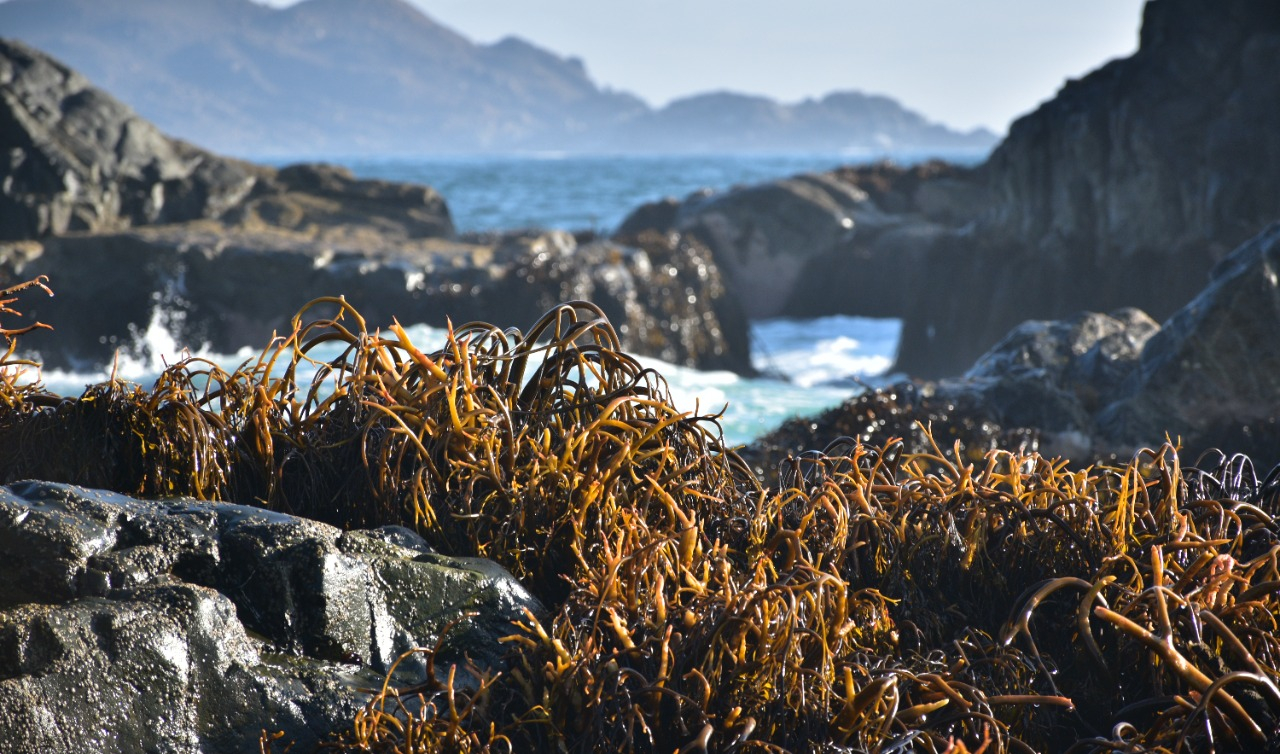
27 Mar Multiple motivations behind non-compliance threatens the sustainability of kelps fishery
The motivations for non-compliance with regulations in the harvesting of huiro negro (Lessonia berteroana) vary significantly depending on how sanctions and the resource management context are perceived. The findings of a study by the Millennium Institute SECOS indicate that the perception of weak enforcement and ineffective penalties influences the behavior of fishers and seaweed harvesters, putting at risk the sustainability of the fishery, the natural ecosystem, and the livelihoods of thousands of people who depend on its benefits. The study proposes integrated strategies to strengthen governance and promote sustainable practices.
Kelp (Lessonia berteroana and L. spicata), a brown algae that plays a crucial role in coastal ecosystems by providing habitat and food for various marine species, is also a vital economic resource for more than 15,000 artisanal fishers in Chile. However, the perception that non-compliance carries no significant consequences encourages illegal practices that affect the sustainability of the resource and the local economy.
This is revealed by a study published in the journal Marine Policy, led by Isidora Ávila-Thieme, researcher at the Millennium Institute for Coastal Socio-Ecology (SECOS), the Center for Resilience, Adaptation and Mitigation at Universidad Mayor (CREAM), and CAPES UC.
The study analyzed levels of illegality and the motivations behind regulatory compliance in about thirty artisanal fishing organizations in the regions of Antofagasta and Atacama. “Instrumental components—related to the perceived costs and benefits of not complying—play an important role in non-compliance in this fishery. Many fishers stated that enforcement is scarce, so they’re not afraid of getting caught if they break the rules,” says Ávila.
This pattern is repeated across both management regimes (Management Plans and Territorial Use Rights for Fisheries), and is particularly evident in Antofagasta. “This issue not only enables non-compliance, but also leaves fishers vulnerable to resource theft by outsiders who are not part of their organizations,” adds Ávila-Thieme.
Strategies to Strengthen Sustainability
The study proposes a series of integrated strategies that address the issue of non-compliance from a multidimensional perspective, emphasizing the importance of strengthening participatory governance and establishing clear incentives for regulatory compliance.
Stefan Gelcich, director of SECOS and co-author of the study, highlights that “it is important to strengthen the work of management committees and the effective implementation of the agreed-upon measures. Enforcement should focus on those who are truly damaging the resource—actors with higher risk profiles for non-compliance—not on the registered fishers who are committed to sustainability.”
The research also outlines strategies that aim to balance the need for effective enforcement with respect for local knowledge and the socioeconomic realities of fishers. The ultimate goal is to promote a compliance management model that combines resource sustainability with the well-being of coastal communities who depend on it.
Fishers’ Perspectives
During interviews, fishers expressed frustration over their vulnerability to resource theft and a perceived lack of institutional support. Gelcich, who is also a professor at the UC Faculty of Biological Sciences and a researcher at CAPES, explains: “Registered fishers sometimes ask us for help because, despite their efforts to follow the rules, people from other areas come and extract the resource illegally.
This generates frustration and a loss of trust in institutions.” He adds, “When fishers agree on management measures in working groups, these must be prioritized by the State in order to maintain the legitimacy of the process.”


